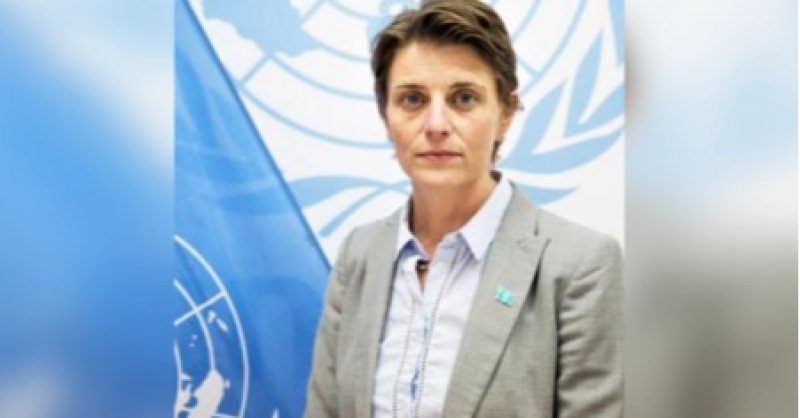- Puppet show enchants Children as Boi Mela comes alive on day 2 |
- DSCC Admin Salam’s drive to make South Dhaka a ‘clean city’ |
- 274 Taliban Dead, 55 Pakistan Troops Killed |
- Now 'open war' with Afghanistan after latest strikes |
- Dhaka's air quality fourth worst in world on Friday morning |
UN Urges Donors to Boost Aid for Rohingya Crisis

The United Nations on Monday issued an urgent appeal to donors to step up and provide generous funding to support vulnerable Rohingya refugees and host communities in Cox’s Bazar.
“As we reach the mid-year point, the Joint Response Plan is critically underfunded at less than 20 percent,” said UN Resident Coordinator Gwyn Lewis from the refugee camps. “While we will prioritise resources, we cannot abandon Rohingya refugees at their time of greatest need.”
In 2025, humanitarian agencies have requested USD 934 million to assist nearly 1.48 million people, including both Rohingya refugees and Bangladeshis in surrounding communities.
Rohingya refugees and host populations alike face extreme risks from flooding, landslides, cyclones, and other natural disasters, making preparedness essential—and lifesaving. However, the usual monsoon preparedness efforts, which begin before May, have been hampered by funding shortages.
This weekend’s heavy monsoon rains have already damaged thousands of shelters in the overcrowded camps. In just two days, 53 landslides struck across 33 camps, destroying more than 1,400 homes amid flooding and strong winds. Tragically, one refugee died after a wall collapse, and eleven were injured by lightning strikes.
“Steep slopes, flooding, and fragile bamboo and tarpaulin shelters create a dangerous mix in such a dense environment,” explained Juliette Murekeyisoni, interim UNHCR Representative. Refugee volunteers are assisting affected families to relocate to safer areas and communal shelters, but “we urgently need more space for shelters.”
Many communal spaces are already used to temporarily host displaced families, and the challenge is compounded by thousands of new arrivals fleeing escalating violence in Myanmar’s Rakhine State. Many have been taken in by relatives who struggle to keep their homes safe and dry.
With the monsoon season running through August, humanitarian partners have pre-positioned supplies such as tarpaulins, ropes, sleeping mats, water purification tablets, and jerrycans. Trained refugee volunteers stand ready to help with evacuations and relief distribution.
Yet a severe funding shortfall threatens the ability to implement vital preparedness and response measures, UNHCR warns.
Meanwhile, UNICEF has raised alarm over a deepening funding crisis jeopardising education for roughly 230,000 Rohingya children. Recent declines in funding have already forced the suspension of support for volunteer teachers working with young learners in the camps.
By 30 June 2025, contracts for 1,179 host community volunteer teachers will end, threatening education access for 83 percent of school-age children enrolled in UNICEF-supported learning centres.
“The children we are speaking about are among the most vulnerable in the world,” said UNICEF Representative Rana Flowers. “Without urgent and sustained funding, temporary closures of learning centres will continue, risking an entire generation being left behind.”
Learning facilities will remain closed at least until the end of June, coinciding with an extended Eid holiday. Reopening will depend entirely on new funding availability.
For the 2025–2026 academic year, early grade students (Kindergarten to Grade 2) will no longer receive instruction in English, science, or social studies. Focus will be limited to literacy (Rohingya language), Burmese, mathematics, life skills, and socio-emotional learning.
No new textbooks or teacher guides will be procured; children must reuse worn materials. End-of-year assessments and placement tests are cancelled. Volunteer teachers will no longer receive paid holidays and may continue only on a voluntary basis until funding resumes.
Without immediate financial support, vital humanitarian and educational services for Rohingya refugees and host communities face severe disruption at a time when their needs have never been greater.

